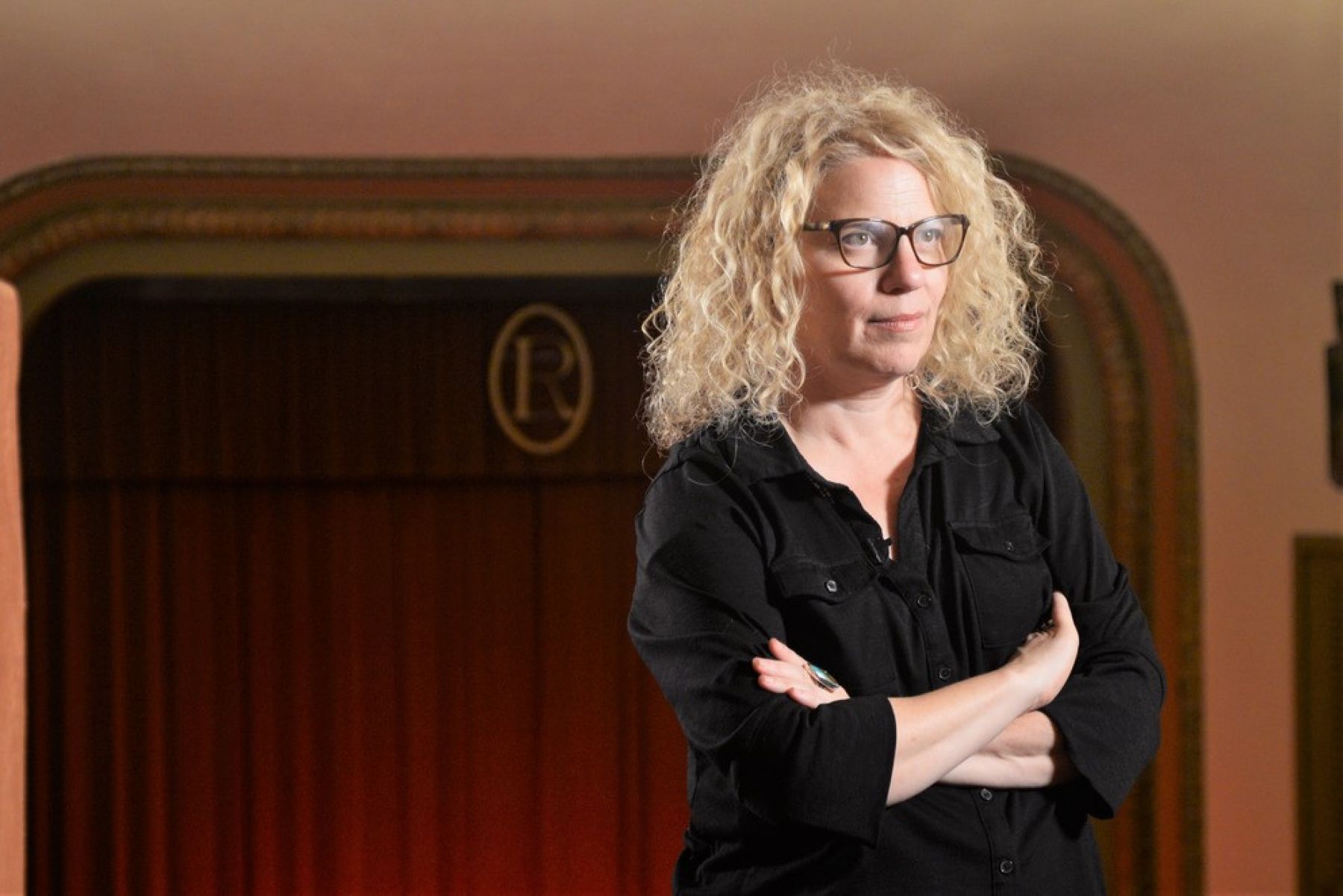Faculty member earns Fulbright support to develop film in Poland and Israel

An award-winning faculty filmmaker in the Donald P. Bellisario College of Communications at Penn State has received a Global Fulbright U.S. Scholar Program award to Poland and Israel, the U.S. Department of State and the J. William Fulbright Foreign Scholarship Board recently announced.
Pearl Gluck, an associate professor in the Department of Film Production and Media Studies, will research and begin production on “Little Miss Hasid,” a feature-length documentary, at Tel Aviv University and the Lodz National Polish Film School during the fall 2021 semester.
As a Fulbright Scholar, Gluck will share knowledge and work to foster meaningful connections across communities in the United States, Poland and Israel. Fulbright Scholars engage in cutting-edge research and expand their professional networks, often continuing research collaborations started abroad and laying the groundwork for forging future partnerships between institutions.
Upon returning to their home countries, institutions, labs and classrooms, they share their stories and often become active supporters of international exchange — inviting foreign scholars to campus and encouraging colleagues and students to go abroad. As Fulbright Scholar alumni, their careers are enriched by joining a network of thousands of esteemed scholars, many of whom are leaders in their fields. Fulbright alumni include 60 Nobel Prize laureates, 86 Pulitzer Prize recipients, and 37 who have served as a head of state or government.
Gluck’s project focuses on educational pioneer and feminist Sarah Schenirer and the Bais Yaakov movement that she founded. “Little Miss Hasid,” which was Schenirer’s nickname in Polish grade school, builds on Naomi Seidman’s academic monograph (“Sarah Schenirer and the Bais Yaakov Movement: A Revolution in the Name of Tradition”) that focuses on the interwar Polish emergence of the movement.
Gluck, who led a group of Penn State students to Poland in 2019, has already built a connection with Seidman, who agreed to adapt her book into a film.
“Her book reveals a complicated and fraught story of Schenirer — a woman grappling with her faith. A picture of a feminist, social activist, innovator and religious revolutionary unfolded,” said Gluck, who serves as the Donald P. Bellisario Career Advancement Professor in the Bellisario College. “I asked Dr. Seidman if she would be open to adapting the book into a film with me, a film that might incorporate some of her critical research, allow for documentary exploration, and would give voice and visual to this unknown-yet-familiar figure through some experimental and/or narrative elements. She said yes.
“The research and development phase of the project spans from Krakow, where the movement was ignited, to present day United States and Israel, where the largest numbers of Bais Yaakov schools are located.”
Gluck, a co-founder of the Centre Film Festival, teaches screenwriting, directing and producing. Through her courses and films she explores themes such as autobiographical film and representations of class, faith and gender in cinema. Her previous films, including "The Turn Out" (2018), "Summer" (2018), "Where is Joel Baum?" (2012) and "Divan" (2004), have earned accolades at festivals across the world.
The Fulbright Program is the flagship international educational exchange program sponsored by the U.S. government and is designed to forge lasting connections between the people of the United States and the people of other countries, counter misunderstandings, and help people and nations work together toward common goals. Since its establishment in 1946, the Fulbright Program has enabled more than 390,000 dedicated and accomplished students, scholars, artists, teachers and professionals of all backgrounds to study, teach and conduct research, exchange ideas, and find solutions to shared international concerns.
The Fulbright Program is funded through an annual appropriation made by the U.S. Congress to the U.S. Department of State. Participating governments and host institutions, corporations and foundations around the world also provide direct and indirect support to the program, which operates in more than 160 countries worldwide.

